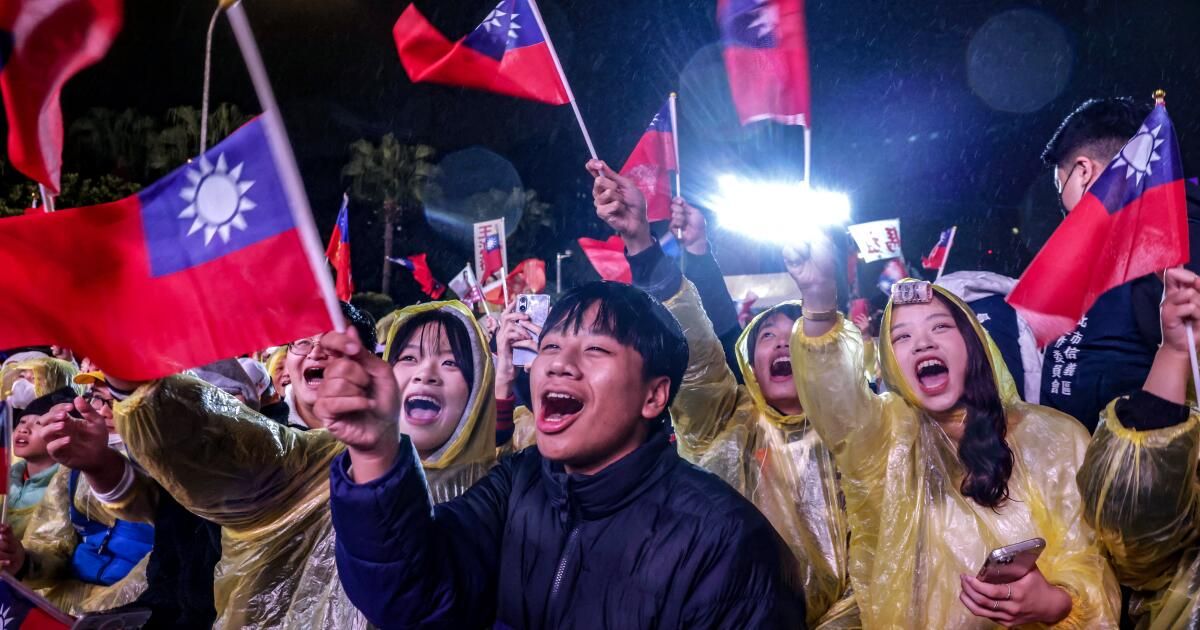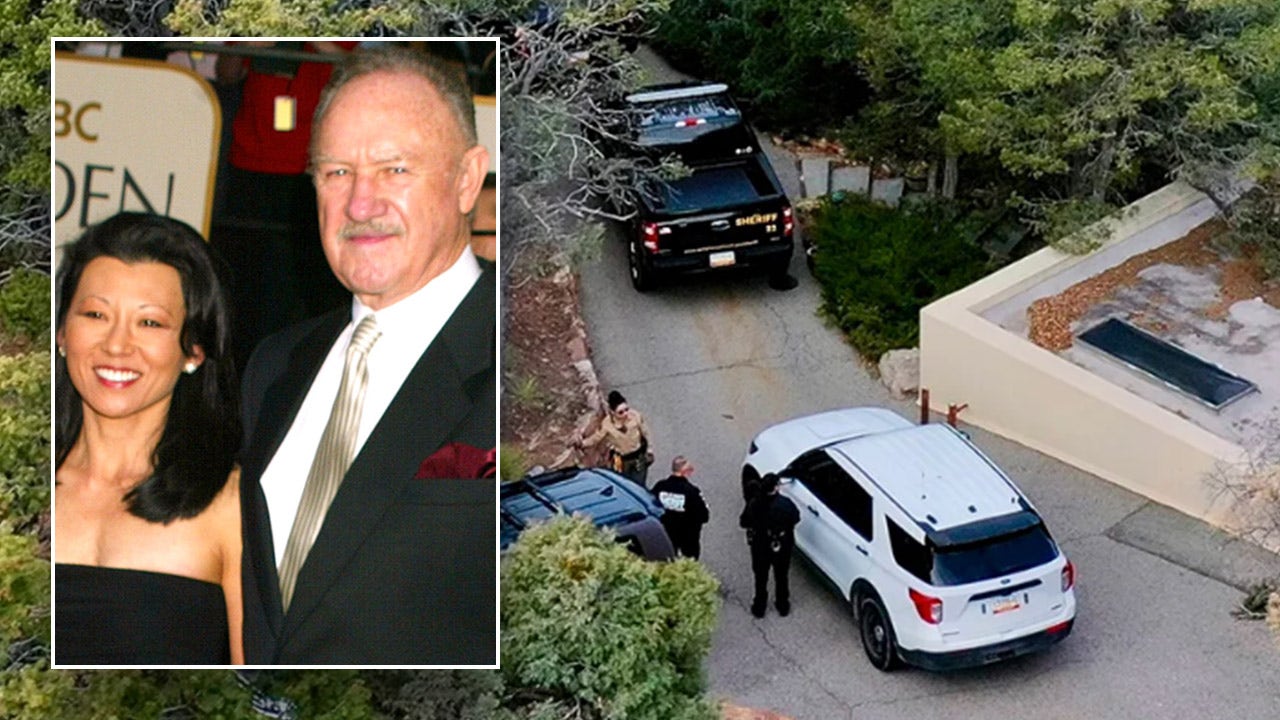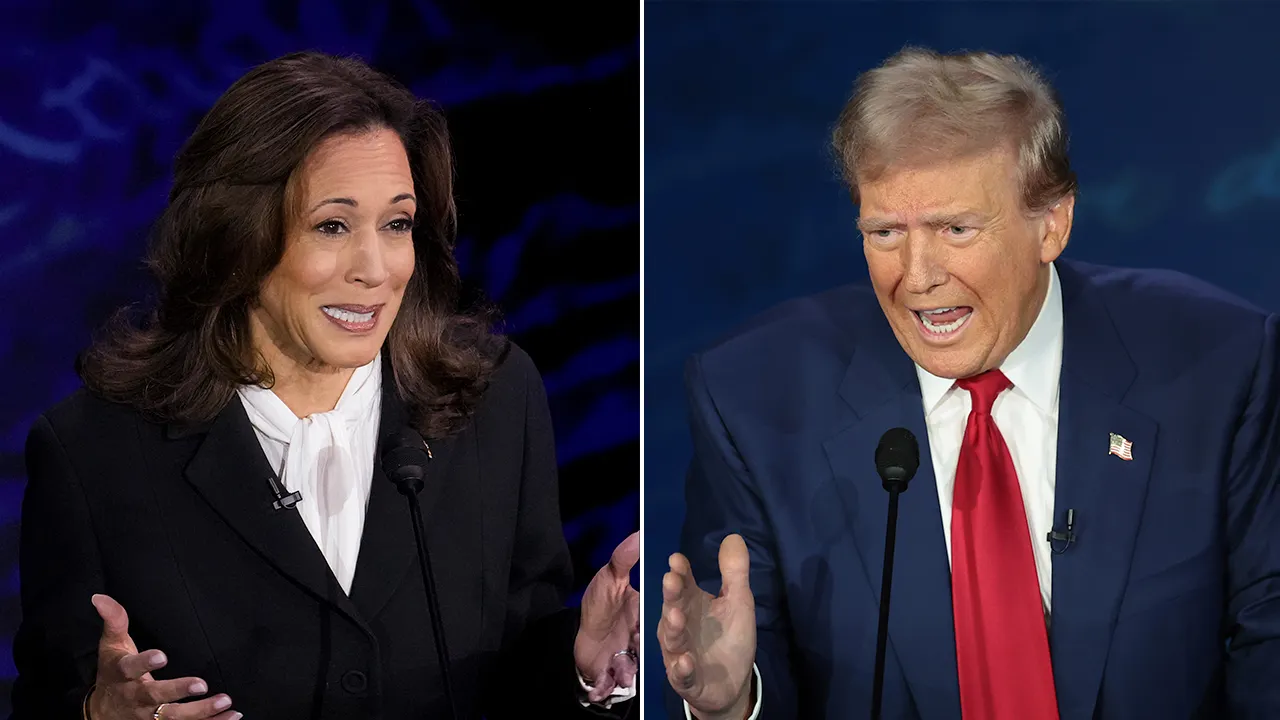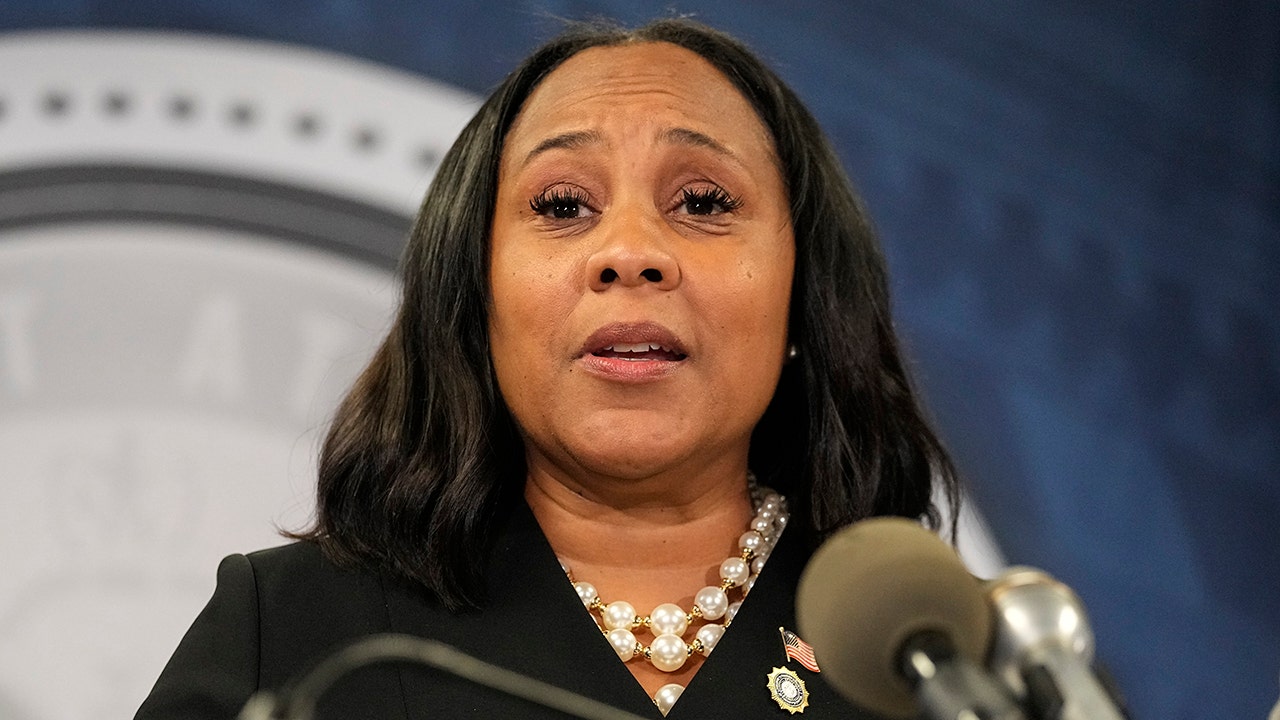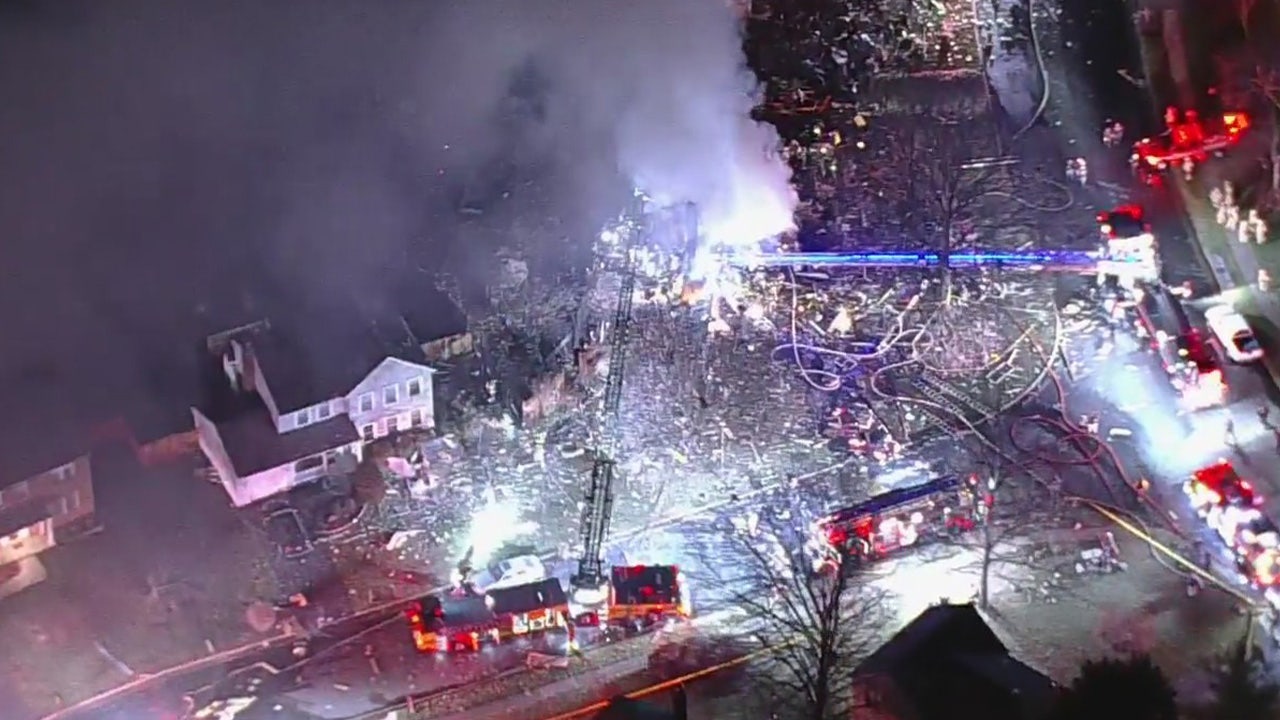As Jean Tsao prepared a Thanksgiving feast with her son, her phone kept ringing.
She and many other Taiwanese Americans were glued to what some have described as a “soap opera” of a Pacific-wide presidential election.
That day in Taiwan, after an attempt to unify opposition parties had failed, candidates were consolidating their intention to run on separate lists, and several vice-presidential races would be revealed.
Many of those who contacted Tsao, as she juggled her phone and the turkey and cabbage dumplings she was preparing, were upset about the failure of the joint ticket. Some asked how they could accompany her on her trip to Taiwan to vote in the January 13 elections.
Passions on both sides of Taiwanese politics are as intense as Democrats versus Republicans, sometimes leading to conflicts in families and workplaces. And that has transferred to the United States. Even some who have lived here for decades are haunted, and not just by the political drama.
China, which considers Taiwan its own territory and has vowed to seize the island by force if necessary, has become increasingly aggressive amid what it sees as provocations from U.S. lawmakers and Taiwanese President Tsai Ing-wen. .
How the next president handles cross-Strait relations could mean the difference between war and a fragile status quo. Some also fear that the wrong approach could lead to an erosion of Taiwan’s hard-won democracy.
Jean Tsao, center, sings the national anthem during the Kuomintang New Year celebration at Chinatown’s Golden Dragon restaurant on Jan. 1 in Los Angeles.
(Dania Maxwell / Los Angeles Times)
Tsao is head of the US southwest branch of the Kuomintang, or KMT, which is generally friendlier to China than the Democratic Progressive Party, or DPP.
She sees the KMT as the “bridge of peace” and feels that the DPP is denying the Chinese roots of Taiwan’s dominant culture.
“They give up everything about our culture,” said Tsao, 72, a retiree from Rowland Heights who came to the United States in 1976 to pursue her master’s degree in business administration. “They don’t want 5,000 years of culture.”
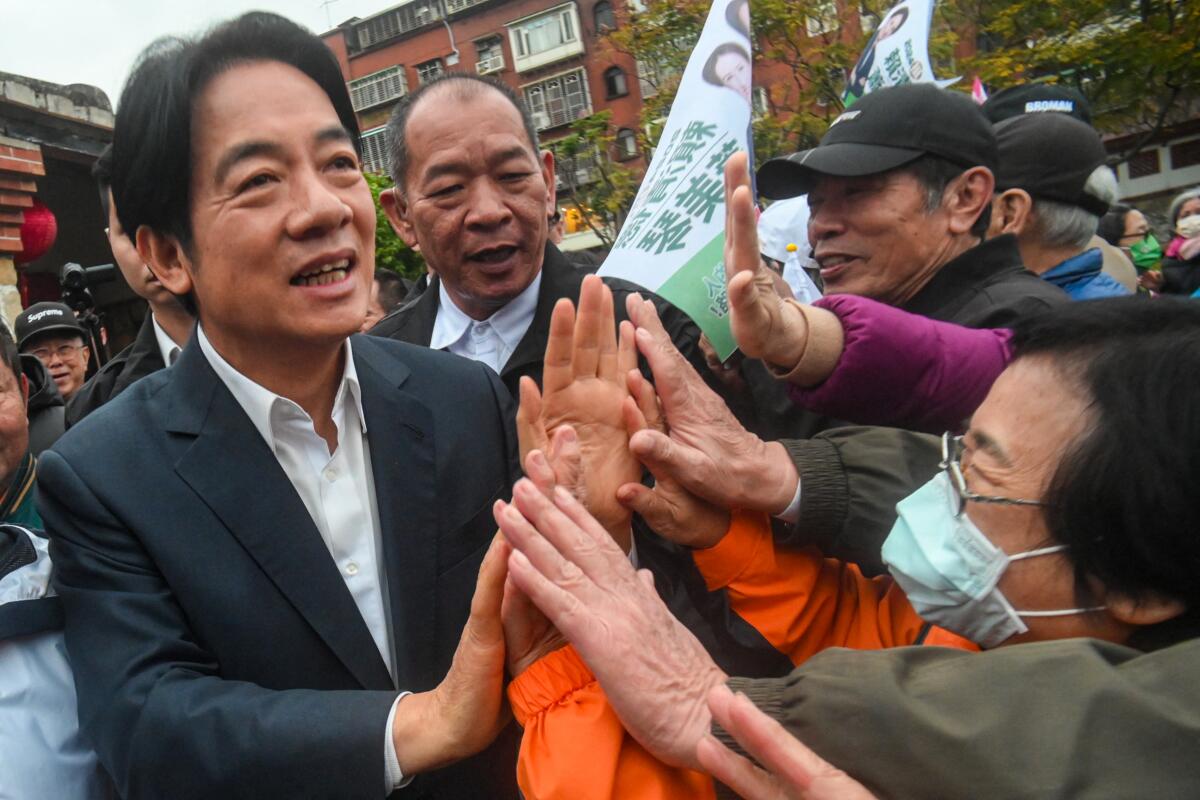
Taiwanese presidential candidate Lai Ching-te of the ruling Democratic Progressive Party (DPP) is welcomed by supporters in New Taipei City on January 3.
(Sam Yeh/AFP via Getty Images)
In these presidential elections, the drama has been incessant, with Taylor Swift is even becoming a topic of conversation.
At a press conference in November, opposition candidates Hou Yu-ih of the KMT, Ko Wen-je of the Taiwan People’s Party and billionaire Foxconn founder Terry Gou attacked each other as they dealt a fatal blow to the unified formula. Then Gou retired.
The DPP’s Tsai is ending her term and her vice president, Lai Ching-te, leads the polls after other candidates failed to establish themselves.
In a debate late last month, Lai, Hou and Ko debated their policies toward China. At one point, Ko fought back tears over accusations about land his father had bought for him.
Nearly a year until the U.S. presidential election, many Taiwanese Americans are obsessed with every twist and turn, devouring news clips and talk shows on YouTube and sharing political chatter with friends on the Line app.
“It turned out to be more of a soap opera,” said Lihan Chen, a 69-year-old Orange resident and president of the Taiwanese American Aeronautics and Space Association.
Chen, who supports Lai because of the KMT’s past as a military dictatorship, said he plays Taiwanese news in the background at work and regularly posts about Taiwanese politics on Facebook and group chats.
Tony Chen, president of the Laguna Woods Taiwanese Club and a Lai supporter, said choices come up frequently, even on weekly walks with friends. They all have a similar political ideology and care deeply about the place where they grew up.
“We all want a chance to visit again,” said Chen, 76, a retiree. who came to the United States for graduate studies in 1969. “We don’t want China to take over.”
Last month, at the Taiwan Center in Rosemead, about 30 Lai supporters waved flags and chanted: “Elect the right person! Walk the right path! in Mandarin. They urged Taiwanese Americans who have retained their Taiwanese citizenship to fly home to vote, the only way for overseas residents to cast their ballots.
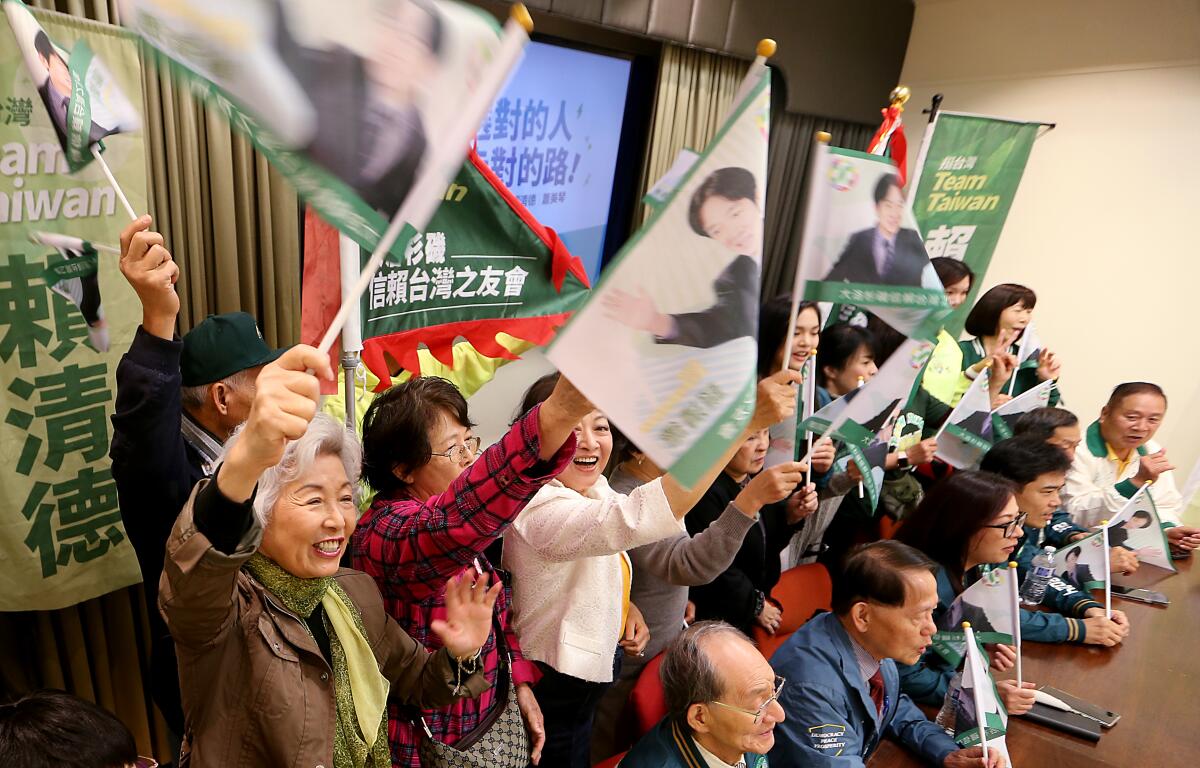
The Taiwanese diaspora in Southern California is watching the presidential election unfold in Taiwan. The Western US Chapter of the Democratic Progressive Party called on overseas Taiwanese to participate by traveling to Taiwan to vote, during a press conference in Rosemead on December 22.
(Luis Sinco/Los Angeles Times)
More than a hundred Lai supporters from Southern California plan to attend a banquet in Taipei the day after the election, said Vera Yang, who heads the DPP’s Western chapter in the United States and is flying to Taiwan.
MimiQ Soong, the reigning Miss Taiwanese American who studies world arts and culture at UCLA, did a “campaign dance” for Lai, pumping her fists and clutching her chest.
Soong, 18, wore a green jacket with a patch that read “Democracy MVP 2024.” Lai, a big baseball fan, has called his campaign “Team Taiwan,” which sounds like “give strong support to Taiwan” in Mandarin.
Soong raised a finger. A woman behind her screamed. Hey- two: urge Soong to raise another finger to represent Lai’s number 2 position on the ballot.
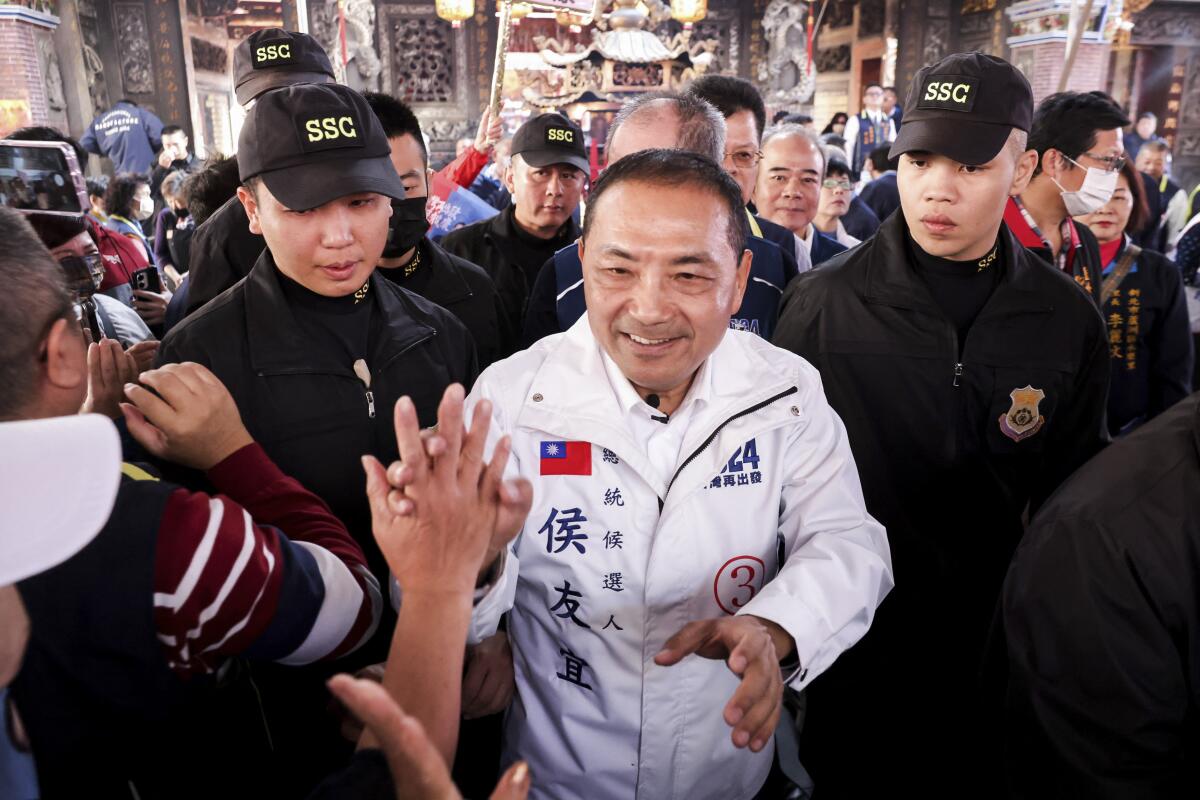
Hou Yu-ih, center, presidential candidate of the main opposition Kuomintang (KMT) party, shakes hands with his supporters at a local temple during a visit as part of his election campaign in New Taipei City on January 5.
(I-Hwa Cheng/AFP via Getty Images)
Soong’s father’s family came to Taiwan from China after World War II and, like many of those families, supports the KMT. Her mother’s family has been in Taiwan for centuries and supports the DPP.
Soong said his political views took shape during a trip to China in 2019. After telling his brother that Taiwan was an independent country, police came to his bedroom and gave him a warning.
“I saw how important it is to be able to express your political opinion and have a democracy where you can do that,” Soong said. “We need to elect a leader who can protect…Taiwan’s democracy.”
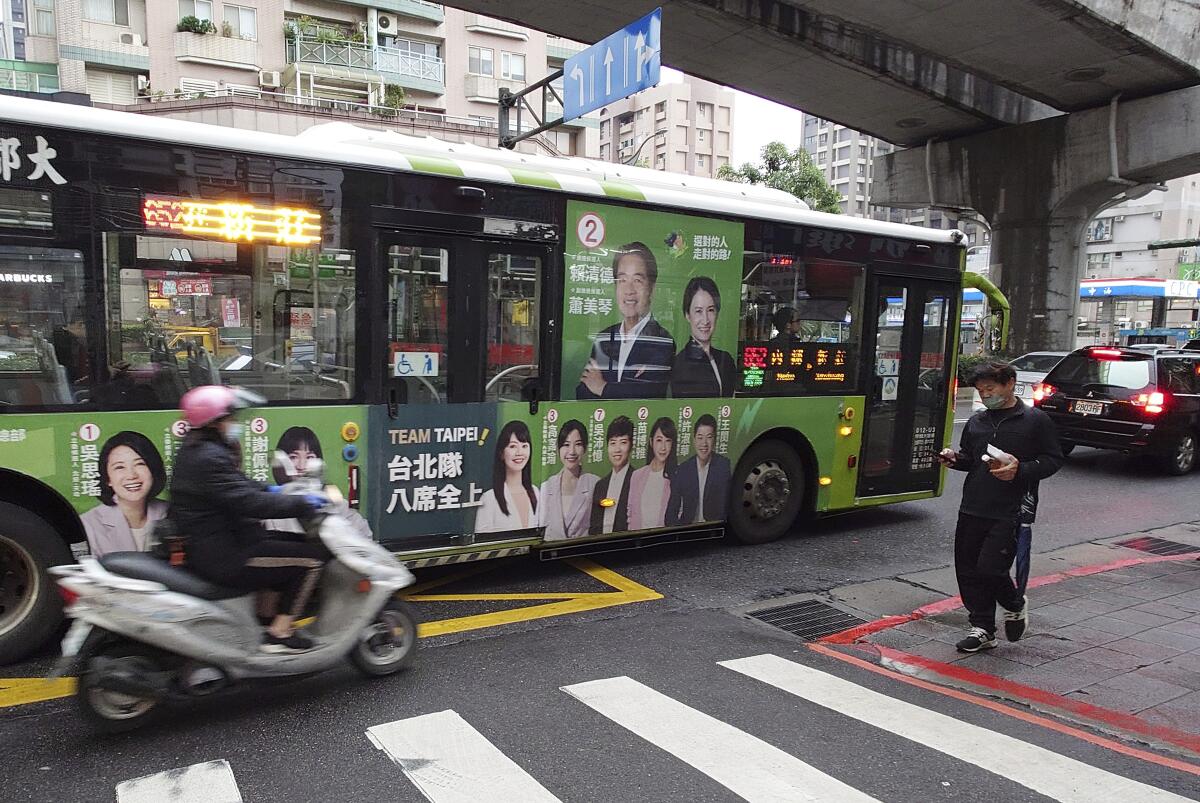
Candidates’ posters about the Taiwanese presidential election are displayed on a bus in Taipei, Taiwan, on December 28. Taiwan will hold its presidential elections on January 13.
(ChiangYing-ying / Associated Press)
Seiya Shaw’s stance on Taiwanese politics (in her case, support for the TPP) has caused friction in her family and at work.
Ko, a doctor and former mayor of Taipei, has won support from young Taiwanese and people dissatisfied with both major parties. In last month’s debate, Ko said Taiwan should cooperate with China if necessary, compete with China if necessary, and confront China if necessary.
After eight years of control by the DPP, the party’s status as “the man” has created discontent, especially among Taiwan’s youth, said Lev Nachman, an assistant professor at National Chengchi University in Taipei who studies Taiwanese politics.
“A lot of it is just, ‘We’re tired of the big two games, or the big two games don’t seem big, and we’d rather have another option,’” Nachman said.
Shaw, 53, a human resources manager who lives in Walnut, said neither the PDP nor the KMT has improved the lives of Taiwanese. He worries that another DPP victory could lead China to invade Taiwan.
When “Ko P” (the “P” is for professor) visited Los Angeles in October, Shaw hosted a banquet for him.
Shaw brought his mother-in-law, a PDP supporter, and told her he was there to help his boss. At the banquet, he told her the truth: he is president of Friends of Ko P in Southern California.
“She told me to be wise, to choose wisely,” Shaw said. “I know I’m not going to change her, but she knows she’s not going to change me either.”
Shaw’s boss is a KMT supporter who, after alliance talks collapsed, complained that Ko is a “bad guy.”
Shaw travels to Taiwan to vote, the first time she has done so since coming to the United States 30 years ago.
Lihan Chen, 69, who lives in Orange and supports Lai, said his nephew in Taiwan is one of Ko’s young crushes.
The nephew called the DPP “corrupt” and demanded to know why it doesn’t support the TPP, said Chen, who sees the TPP as a threat to the democracy his generation fought so hard to establish.
“It’s basically your way or not,” Chen said of Ko’s rhetoric. “They’re trying to overthrow the current system.”
While KMT and TPP supporters lamented the collapse of the potential alliance between their candidates, others rejoiced.
Tony Chen, president of the Laguna Woods Taiwanese Club, said he and other Lai fans were “all smiling” at the news. “When we see each other in the supermarket we would say that it is the best thing that can happen to us.”
Chen has seen the worst consequences of the extreme emotions that can arise from Taiwan’s political and ethnic divisions. He is an elder at the Orange County Taiwanese Church, where a gunman burst into a luncheon, killing a 52-year-old doctor and wounding five.
According to prosecutors, the gunman, who was born in Taiwan to a family with recent roots in China, targeted the church, where services are held in the Taiwanese dialect, due to the Taiwanese national origin of the parishioners.
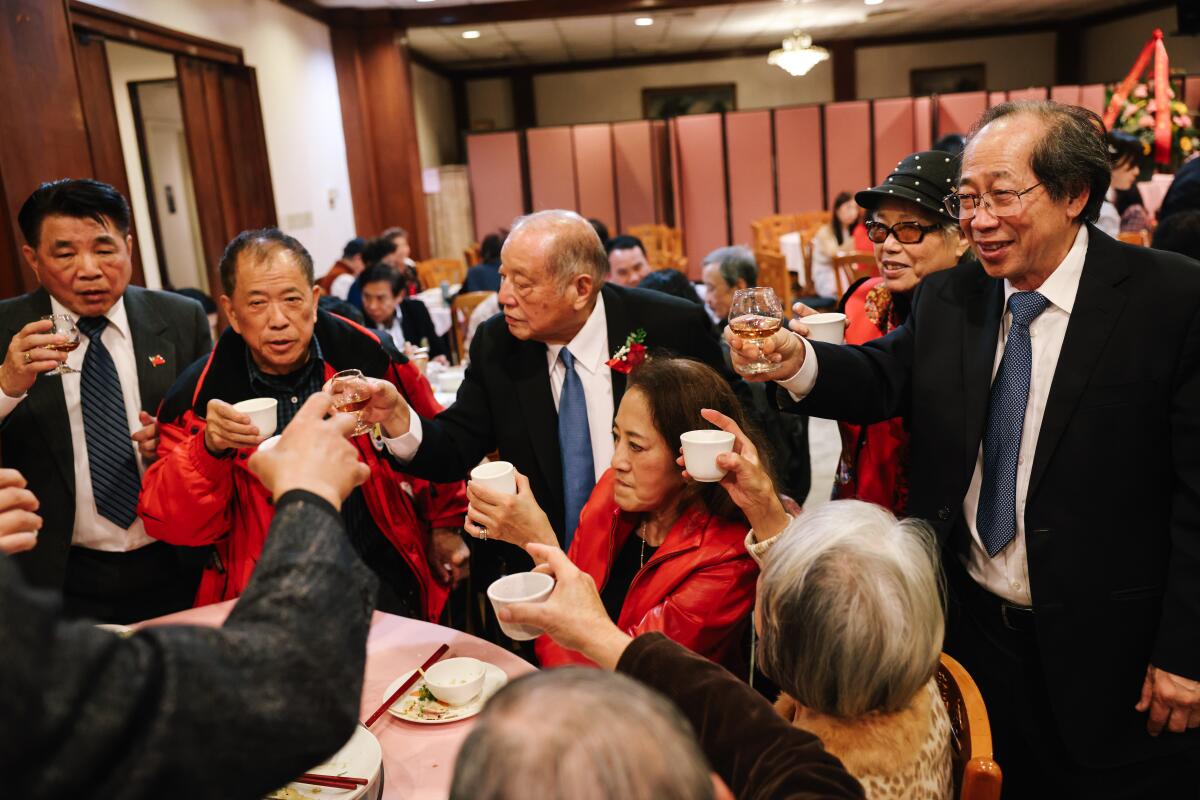
Commissioner Michael Cheung, right, offers cheers at all the tables during the Kuomintang New Year celebration at Chinatown’s Golden Dragon restaurant on Jan. 1 in Los Angeles.
(Dania Maxwell / Los Angeles Times)
On New Year’s Day, a few dozen KMT supporters gathered at the Golden Dragon restaurant in Chinatown to mark the 113th anniversary of the founding of the Republic of China, which is still the official name of Taiwan, where the KMT moved in 1949 after being defeated by the communists. , then governed by martial law for decades.
Tsao, the local KMT leader, attended the event hours before taking a flight to Taiwan to campaign and then vote.
Cindy Wu, who came to the United States from Taiwan at age 11, heard a speaker criticize the DPP.
Wu, a member of the Mountain View School District Board of Education in El Monte, said his mother had flown to Taiwan the night before to vote for Hou of the KMT, mayor of New Taipei City and former high-ranking police officer. range.
Wu does not share his 72-year-old mother’s fervent support of the KMT; he just doesn’t want China to take over Taiwan.
But she is “extremely happy” to see her mother and other Taiwanese Americans exercise their right to vote, which is more threatened than ever by China.
“The only thing I’m so proud of as a Taiwanese is that they spend the money and effort to go vote,” Wu said.

